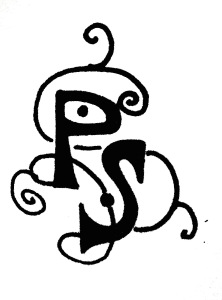After playing Undertale, and after awarding it my game of the year (very prestigious, I know), I quickly went on a hunt to see if there were any new games that could possibly come close to achieving the same amount of tone, charm, and emotion as Undertale.
What I kept finding was LISA: The Painful RPG.
The similarities between Undertale and LISA are pretty striking: both games feature quirky worlds, draw strongly from the Mother series, and deconstruct RPGs through mechanics and meta-humor. However, it cannot be understated that these are very different games. Where Undertale is mostly cheerful and charming (unless the player takes certain actions), LISA never departs from a theme of tragedy and despair.
LISA takes place in a post-apocalyptic world where all women have vanished off the face of the Earth. Well, nearly all women. The player controls Brad, a drug addict and martial artist who finds a baby that happens to be the last girl the world. Brad raises her as his own in secret until his friends – desperate to repopulate the world – give the child up to the warlord Rando. Brad departs on a painful quest, harming guilty and innocent alike to get his “daughter” Buddy back haunted all the while by hallucinations of his sister Lisa, who killed herself as a child. Needless to say, LISA is not a very cheerful game. What LISA is, is an emotional game.
What impressed me most about LISA was just how strong the tone of the game was throughout. The characters, the environments, even the odd humor helped create this oppressive atmosphere of chaos and despair. Nothing ever feels right in LISA, its always off-kilter. This is most obvious in the game’s surreal sequences, but even in quiet moments – where the player is just walking for example – there hangs a feeling of dread.
Part of what makes this work, I think, is the way the character of Brad is developed. Extra Credits recently did a video about anti-heroes in video games and the challenges of effectively using them. Anti-heroes are often written as a rebellious response to the norms of the day, subverting the power of traditional values through amoral or unassuming “heroes.” Unfortunately, many forms of anti-heroes have become the norm, forcing new mediums to force dark, angsty characters into narratives for no real reason. Furthermore, an antihero is not someone you want to be, so it can be difficult to play as one.
Brad, I think, is one of a new generation of anti-heroes. Brad is obviously not a nice person, but he justifies his goals enough for the player to sympathize with his cause. As the world of LISA is revealed to be ever more insane and unforgiving the player, like Brad, is capable of justifying increasingly unethical actions in their quest. We come to sympathize with Brad, only for the game to remind us that maybe we shouldn’t.
LISA isn’t a perfect game. Sometimes elements of the story seem a little too vague (though some of it may be better explained in the sequel DLC that I’m going to play). The combat can be a burden and I often wanted to skip fights to continue the story. I understand that the game is supposed to be difficult and unforgiving – it makes sense to mechanically reflect the game world this way – but I can’t help feel like there are things in this game that are difficult or frustrating without the designers intending them to be that way. The navigation, especially at newly discovered crossroads, comes to mind.
Nonetheless, I think LISA is a very good game. Its a game that is willing to give the player painful experiences without breaking the immersion of the game. I wouldn’t go so far to say that its the masterpiece that Undertale is, but it definitely comes closer than any other game I can think of that tries as hard as Undertale to make the player think about the game they’re playing critically. I will definitely remember Brad’s journey, from its painful beginnings to its haunting conclusion, though perhaps I wish I didn’t.

